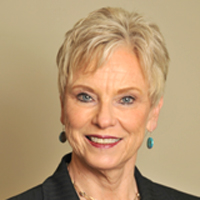Financial Triage for the Suddenly Single
Here are the first steps to take when you’re picking up the pieces.


Profit and prosper with the best of Kiplinger's advice on investing, taxes, retirement, personal finance and much more. Delivered daily. Enter your email in the box and click Sign Me Up.
You are now subscribed
Your newsletter sign-up was successful
Want to add more newsletters?

Delivered daily
Kiplinger Today
Profit and prosper with the best of Kiplinger's advice on investing, taxes, retirement, personal finance and much more delivered daily. Smart money moves start here.

Sent five days a week
Kiplinger A Step Ahead
Get practical help to make better financial decisions in your everyday life, from spending to savings on top deals.

Delivered daily
Kiplinger Closing Bell
Get today's biggest financial and investing headlines delivered to your inbox every day the U.S. stock market is open.

Sent twice a week
Kiplinger Adviser Intel
Financial pros across the country share best practices and fresh tactics to preserve and grow your wealth.

Delivered weekly
Kiplinger Tax Tips
Trim your federal and state tax bills with practical tax-planning and tax-cutting strategies.

Sent twice a week
Kiplinger Retirement Tips
Your twice-a-week guide to planning and enjoying a financially secure and richly rewarding retirement

Sent bimonthly.
Kiplinger Adviser Angle
Insights for advisers, wealth managers and other financial professionals.

Sent twice a week
Kiplinger Investing Weekly
Your twice-a-week roundup of promising stocks, funds, companies and industries you should consider, ones you should avoid, and why.

Sent weekly for six weeks
Kiplinger Invest for Retirement
Your step-by-step six-part series on how to invest for retirement, from devising a successful strategy to exactly which investments to choose.
When you become solely in charge of your financial future by death or divorce, the decisions you face likely seem overwhelming. The flood of emotions you experience may affect your decision-making capabilities, no matter how strong or independent you were as a partner.
In most relationships, responsibilities are shared. You may or may not have been the bill payer or the asset organizer. Now these, and myriad other roles, are all on your shoulders. You need the Oxford Dictionary’s definition of “triage” — “the assignment of the degrees of urgency.” Normally the term is used when referring to a medical disaster, but it’s also applicable to your finances during times of personal crisis.
As you begin the process of rebuilding your life, here are the first steps to take:
From just $107.88 $24.99 for Kiplinger Personal Finance
Become a smarter, better informed investor. Subscribe from just $107.88 $24.99, plus get up to 4 Special Issues

Sign up for Kiplinger’s Free Newsletters
Profit and prosper with the best of expert advice on investing, taxes, retirement, personal finance and more - straight to your e-mail.
Profit and prosper with the best of expert advice - straight to your e-mail.
Financial Issues to Work Out
- A cash-flow analysis will be an important step to determine your financial obligations and your current sources of income.
- Establishing an emergency fund, if you don’t already have one, should be a top priority. Once any immediate expenses are covered, positioning some of your funds for supplementing your reduced monthly income should be the next priority. After your current situation has been addressed, establishing a long-term plan for life insurance proceeds or assets designated for retirement is the final goal.
- Updating all annuity, life insurance and retirement plan assets with your new primary and contingent beneficiary arrangements will ensure that your wishes are met.
Tax Issues to Consider
- What could be the most beneficial way to file your current year taxes? For those who are divorced, filing separately, jointly or married filing separately are all potential options, each with their own advantages and disadvantages. For widows and widowers, the year of your spouse’s death is the last year you are eligible to file jointly and take advantage of the expanded tax brackets and benefits.
- Quarterly estimates may need to be adjusted to reflect your new income situation.
Legal Issues to Consider
- You must ensure you follow the directions set forth in your deceased spouse’s will. This includes determining who will be handling the estate settlement duties. Once the executor or personal representative of the estate is established, there are several actions needed, such as notifying Social Security, pension providers and creditors.
- Your current will, trust and/or powers of attorney documents will need to be revised based on your new situation.
Don’t Forget to Take Care of Yourself
During such stressful times, you need to take a moment to consider your own needs so you can put yourself in a position where you’re strong enough to help yourself. Remember:
- Emotional and spiritual triage go hand-in-hand with financial triage.
- Turn to your friends, family and your higher being for support.
- Stay busy, exercise, meditate, pray, visit family or go to a support group. Find what works for you.
Words of Caution
Once you get started picking up the financial pieces, it’s important to protect yourself while you’re still vulnerable.
- Don’t be in a rush to change existing investments.
- Avoid impulsive emotional decisions like buying a new car or moving.
- Wait until you have healed and then put a holistic plan in place for your future.
Final Thoughts
If the to-do list of financial, tax and legal tasks seems overwhelming to accomplish on your own, good news, there are professionals trained and prepared to help you. Between financial planners, CPAs and attorneys, the resources are there to take care of the urgent and allow you time to get your feet on the ground before tackling the next chapter of your life.
Know that you are strong. Work at finding peace, and nurture your soul. Rebuilding your life is a process that goes beyond urgency. Take the time to rediscover yourself, be positive, get a vision and outline new goals for your happiness.
Ali Swofford, Ph.D., CLU, ChFC, President of Swofford Financial, minimizes risks and createssolutions enabling retirement focused clients to live, love and leave a legacy.
Profit and prosper with the best of Kiplinger's advice on investing, taxes, retirement, personal finance and much more. Delivered daily. Enter your email in the box and click Sign Me Up.

Aleen M. (Ali) Swofford, PhD, CLU, ChFC, is a founding partner of Prosperity Partners Wealth Management, takes her 33 years of planning, investment and client-partner leadership experience and focuses on creative tax-advantaged solutions designed specifically for each client's unique financial situation. Ali specializes in solving problems and minimizing risks for retirement focused clients so they may concentrate on living, loving, and creating a legacy. What some may view as work is truly Ali's passion.
-
 Dow Adds 1,206 Points to Top 50,000: Stock Market Today
Dow Adds 1,206 Points to Top 50,000: Stock Market TodayThe S&P 500 and Nasdaq also had strong finishes to a volatile week, with beaten-down tech stocks outperforming.
-
 Ask the Tax Editor: Federal Income Tax Deductions
Ask the Tax Editor: Federal Income Tax DeductionsAsk the Editor In this week's Ask the Editor Q&A, Joy Taylor answers questions on federal income tax deductions
-
 States With No-Fault Car Insurance Laws (and How No-Fault Car Insurance Works)
States With No-Fault Car Insurance Laws (and How No-Fault Car Insurance Works)A breakdown of the confusing rules around no-fault car insurance in every state where it exists.
-
 For the 2% Club, the Guardrails Approach and the 4% Rule Do Not Work: Here's What Works Instead
For the 2% Club, the Guardrails Approach and the 4% Rule Do Not Work: Here's What Works InsteadFor retirees with a pension, traditional withdrawal rules could be too restrictive. You need a tailored income plan that is much more flexible and realistic.
-
 Retiring Next Year? Now Is the Time to Start Designing What Your Retirement Will Look Like
Retiring Next Year? Now Is the Time to Start Designing What Your Retirement Will Look LikeThis is when you should be shifting your focus from growing your portfolio to designing an income and tax strategy that aligns your resources with your purpose.
-
 I'm a Financial Planner: This Layered Approach for Your Retirement Money Can Help Lower Your Stress
I'm a Financial Planner: This Layered Approach for Your Retirement Money Can Help Lower Your StressTo be confident about retirement, consider building a safety net by dividing assets into distinct layers and establishing a regular review process. Here's how.
-
 The 4 Estate Planning Documents Every High-Net-Worth Family Needs (Not Just a Will)
The 4 Estate Planning Documents Every High-Net-Worth Family Needs (Not Just a Will)The key to successful estate planning for HNW families isn't just drafting these four documents, but ensuring they're current and immediately accessible.
-
 Love and Legacy: What Couples Rarely Talk About (But Should)
Love and Legacy: What Couples Rarely Talk About (But Should)Couples who talk openly about finances, including estate planning, are more likely to head into retirement joyfully. How can you get the conversation going?
-
 How to Add a Pet Trust to Your Estate Plan: Don't Leave Your Best Friend to Chance
How to Add a Pet Trust to Your Estate Plan: Don't Leave Your Best Friend to ChanceAdding a pet trust to your estate plan can ensure your pets are properly looked after when you're no longer able to care for them. This is how to go about it.
-
 Want to Avoid Leaving Chaos in Your Wake? Don't Leave Behind an Outdated Estate Plan
Want to Avoid Leaving Chaos in Your Wake? Don't Leave Behind an Outdated Estate PlanAn outdated or incomplete estate plan could cause confusion for those handling your affairs at a difficult time. This guide highlights what to update and when.
-
 I'm a Financial Adviser: This Is Why I Became an Advocate for Fee-Only Financial Advice
I'm a Financial Adviser: This Is Why I Became an Advocate for Fee-Only Financial AdviceCan financial advisers who earn commissions on product sales give clients the best advice? For one professional, changing track was the clear choice.